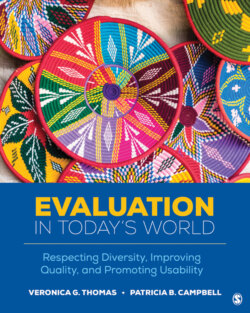Читать книгу Evaluation in Today’s World - Veronica G. Thomas - Страница 62
На сайте Литреса книга снята с продажи.
The Continuing Importance of Research Ethics
ОглавлениеDespite regulations and consciousness-raising regarding ethics in medical, social, and behavioral sciences research, it is an area that still needs attention and monitoring by internal and external bodies. In the article “What Is Ethics in Research and Why Is It Important?” Resnik (2015) cites a number of important reasons for a continued emphasis on ethics in research:
To promote the goals of research, such as the search for knowledge and truth and the avoidance of error
To promote essential values for collaborative work, including trust, accountability, mutual respect, and fairness
To ensure that researchers are held accountable for their actions given policies on conflict of interest, misconduct, and research involving humans or animals
To build public support for research to the extent that people feel they can trust its quality and integrity
To support additional important social and moral values, including the principle of doing no harm to others (paras. 7–11)
By introducing evaluators to the history of research ethics and important principles such as “doing no harm,” “beneficence,” and “respect for persons,” they are better positioned to, first, identify potential ethical dilemmas when they emerge and, second, be deliberate about how to address the issue in a manner that is fair and just. Such an understanding can help the evaluator identify ethical triggers (Munteanu et al., 2015), or elements that indicate potential challenges during the evaluation, particularly when working with participants who belong to vulnerable or marginalized populations (e.g., persons with disabilities), when dealing with sensitive topics (e.g., abortion services), and when there is the possibility of blurred lines between the evaluator and the end user.
